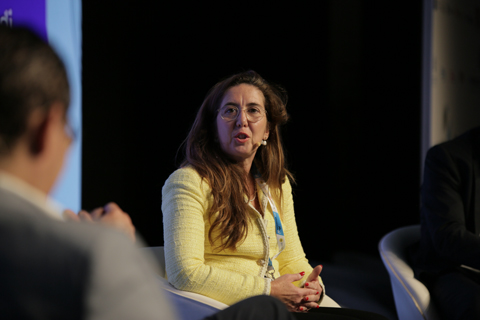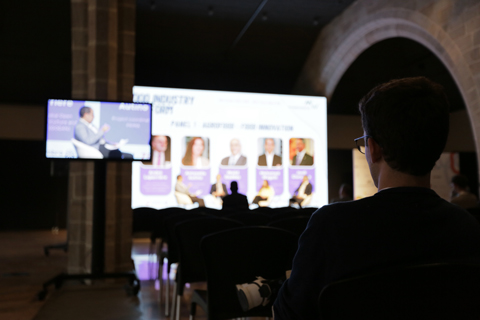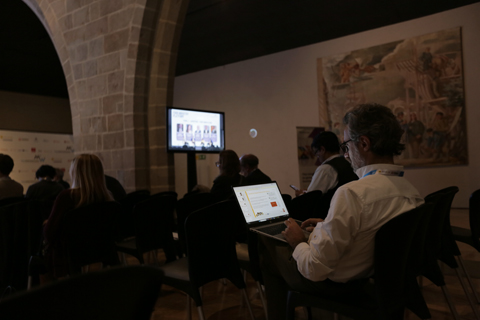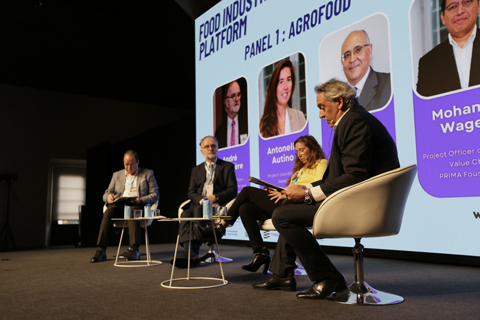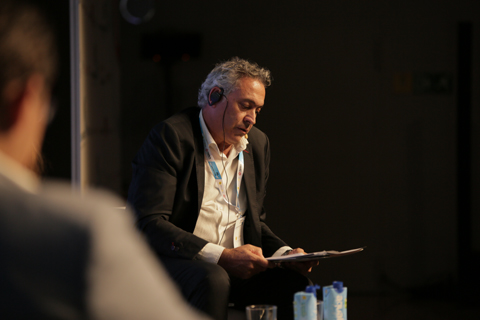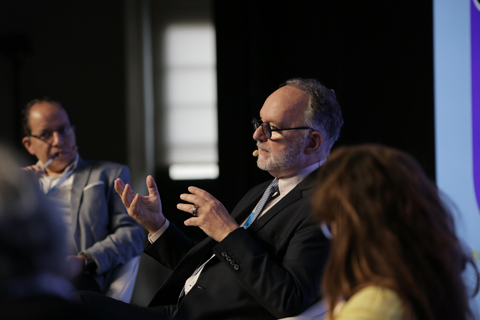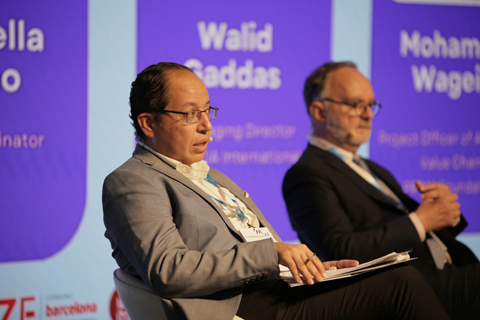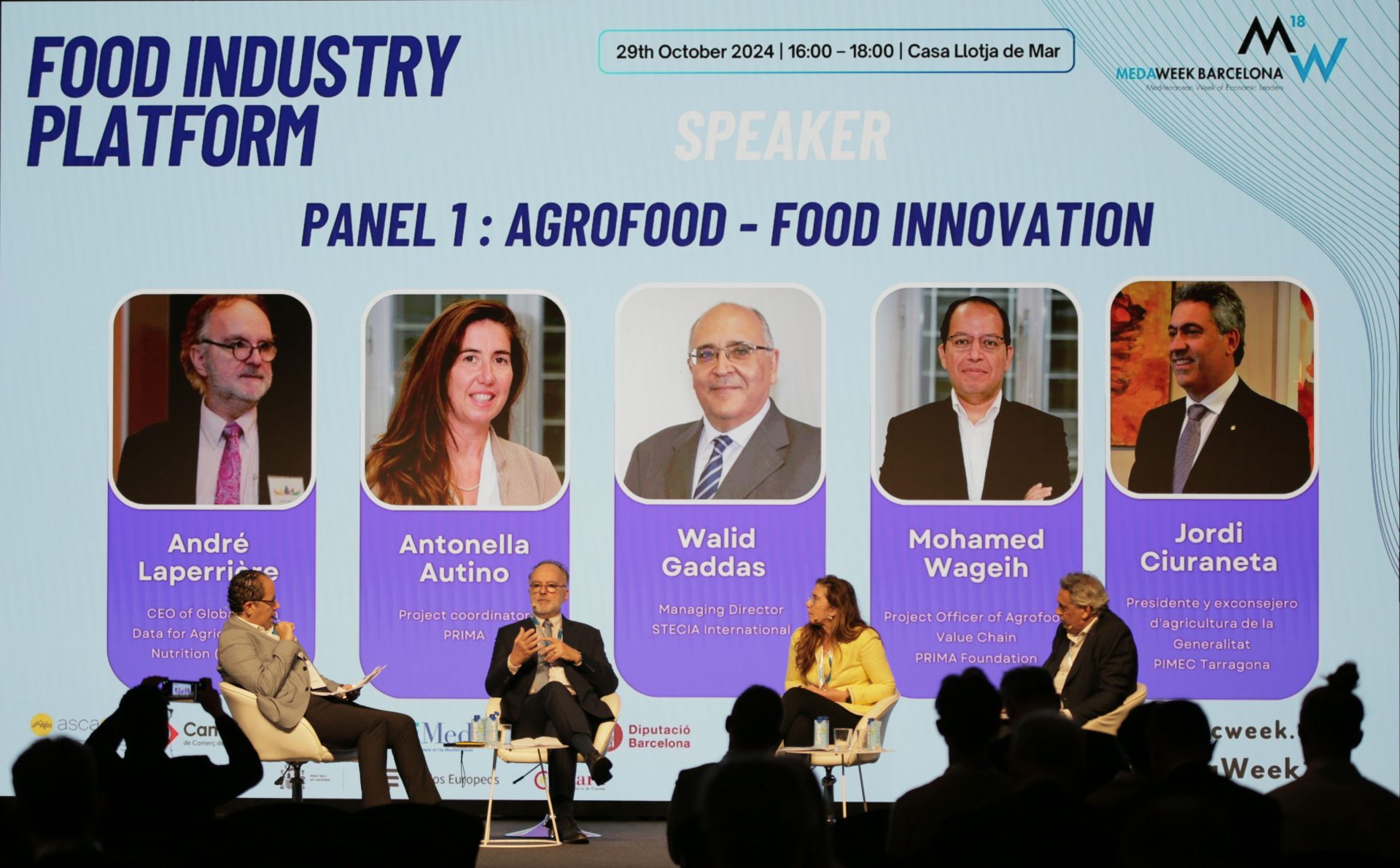
MedaWeek 2024 - Spotlight on F4P and Digital Innovation in the Mediterranean Agro-Food Sector
Event Date: October 29, 2024
Session Time: 16:00 – 16:50 PM
Location: MedaWeek, Barcelona
Session: Agro-Food Innovation Panel
At MedaWeek 2024 in Barcelona, the Mediterranean Food Industry Platform’s Agro-Food Innovation Panel spotlighted Future4PRIMA, an innovative initiative under the Partnership for Research and Innovation in the Mediterranean Area (PRIMA). Moderated by PRIMA’s Mohamed Wageih, Project Officer of the Agrofood Value Chain, the session highlighted how digital technologies and cross-sector partnerships are addressing critical sustainability challenges in the Mediterranean’s agro-food systems.
Future4PRIMA: Building on PRIMA’s Foundation for the Future
Antonella Autino, Project Coordinator for PRIMA and the Future4PRIMA Horizon Europe project, introduced Future4PRIMA as an evolution of PRIMA’s mission. Designed to address pressing Mediterranean challenges, Future4PRIMA emphasizes the integration of digital technologies like blockchain and AI to enhance resilience, traceability, and efficiency within Mediterranean food systems. Autino emphasized that Future4PRIMA’s digital goals align closely with the European Commission’s guidelines on sustainable innovation and digital transformation, aiming to bolster Europe’s competitiveness and environmental sustainability.
“Future4PRIMA builds on PRIMA’s successes, using digital technologies to transform food systems and prepare for the next phase of agro-food sustainability,” said Autino. “By deploying tools such as Decision Support Systems (DSS), blockchain, and AI-driven precision farming, we are fostering a data-driven, resilient agricultural model in the Mediterranean.”
PRIMA’s Role in the SFS-MED Platform
Autino also highlighted PRIMA’s significant role in the SFS-MED Platform, a multi-stakeholder initiative supporting the transformation of food systems across the Mediterranean. Partnering with organizations like the Food and Agriculture Organization of the United Nations (FAO), the International Center for Advanced Mediterranean Agronomic Studies (CIHEAM), and the Union for the Mediterranean (UfM), PRIMA contributes its expertise through digital solutions that improve resource management, food safety, and supply chain transparency. The SFS-MED Platform fosters collaborative networks and promotes context-specific solutions that address the unique challenges facing Mediterranean agrifood systems, including climate change, resource scarcity, and food security issues.
Autino emphasized that the SFS-MED Platform plays a crucial role in aligning regional strategies and driving sustainable agrifood practices, enabling Mediterranean countries to work together to achieve shared sustainability goals. By advancing policy coherence, governance, sustainable finance, and shared learning, the platform provides a foundation for impactful, regionally adapted actions that address the Mediterranean’s most pressing needs.
Why Digitalization is Essential for the Mediterranean Context
The Mediterranean faces unique challenges, including water scarcity, soil degradation, and climate change, which threaten regional food security. Digital tools like blockchain and AI provide crucial support for these challenges by optimizing resource use, enabling transparency, and promoting efficient supply chains. “Digital tools allow us to respond to complex issues like water scarcity with precision,” explained Autino, underscoring the urgency of these solutions for the Mediterranean’s agrifood sector.
Insights from Panelists on Digitalization, Tradition, and Policy Support
The panel also included perspectives from key leaders in open data, traditional agriculture, and policy, stressing the importance of combining technological innovation with Mediterranean agricultural traditions:
- André Laperrière, CEO of Global Open Data for Agriculture and Nutrition (GODAN), discussed the transformative role of open data in bridging technology with tradition. Laperrière emphasized that open data provides accessible, high-quality information for farmers, researchers, and policymakers, supporting data-driven, sustainable decisions. “Open data fosters transparency and encourages practices that improve food security and resource management,” he noted, underscoring its value in strengthening food systems resilience.
- Jordi Ciuraneta, President of PIMEC and an olive oil producer, offered a practical perspective on adopting sustainable practices at the local level. Ciuraneta highlighted the importance of policy support to scale these practices, ensuring digital solutions are accessible to producers. “Collaboration between industry, government, and technology providers is key to sustainable innovation that benefits all Mediterranean producers,” he stated.
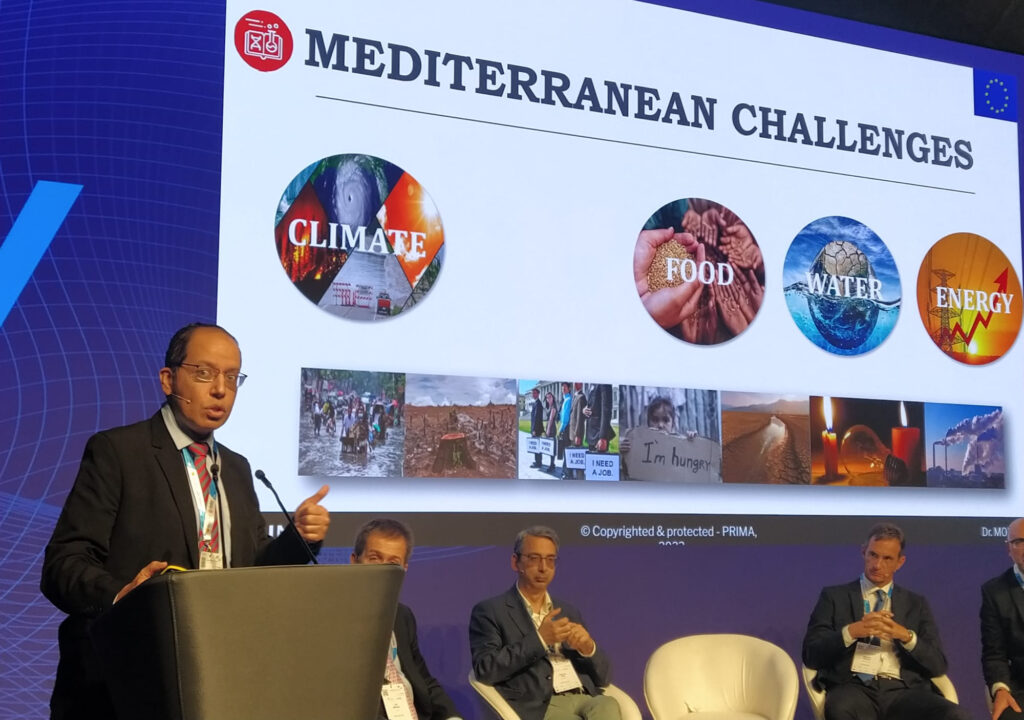
Blockchain and AI: Ensuring Trust and Efficiency in Food Systems
The session also showcased blockchain and AI’s role in ensuring transparency and trust in food supply chains. Autino highlighted PRIMA projects like TRACE-RICE and SUREFISH, which use blockchain to trace products from farm to consumer, ensuring quality and authenticity. For example, TRACE-RICE traces the journey of rice, enhancing quality and consumer trust, while SUREFISH addresses mislabeling in fish products, promoting sustainability and accountability in the seafood sector.
According to Autino, Future4PRIMA’s focus on blockchain and AI offers strategic solutions to tackle traceability, food safety, and climate adaptation. These technologies support targeted interventions and efficient resource use, essential for food security in the Mediterranean.
Strategic Alignment with EU Goals and Future Prospects
Autino highlighted Future4PRIMA’s alignment with the EU’s Green Deal and 2030 Agenda, advancing sustainable agro-food systems resilient to climate change. Future4PRIMA is preparing PRIMA for its next phase by promoting regional partnerships and leveraging advanced digital tools.
Conclusion
Future4PRIMA is setting a benchmark for Mediterranean agro-food innovation by merging digital solutions with traditional practices and strong policy frameworks. MedaWeek 2024 underscored how PRIMA, through initiatives like Future4PRIMA and partnerships such as the SFS-MED Platform, is building a resilient agro-food ecosystem. The panel reinforced the importance of research and innovation, supported by accessible digital technologies like blockchain and AI from PRIMA, GODAN, and other partners, to empower policymakers and farmers in scaling sustainable practices across the Mediterranean.
Concluding the session, Mohamed Wageih, PRIMA Project Officer and moderator, summarized the panel’s insights:
“Today’s discussions highlighted the importance of research, digital innovation, and open data to transform the Mediterranean’s agro-food systems. In a region facing resource scarcity and climate pressures, technologies like blockchain and AI are indispensable for creating transparent, resilient food systems. By working together, policymakers, industry, and farmers can leverage these advancements to build a sustainable and inclusive agro-food sector across the Mediterranean.”
